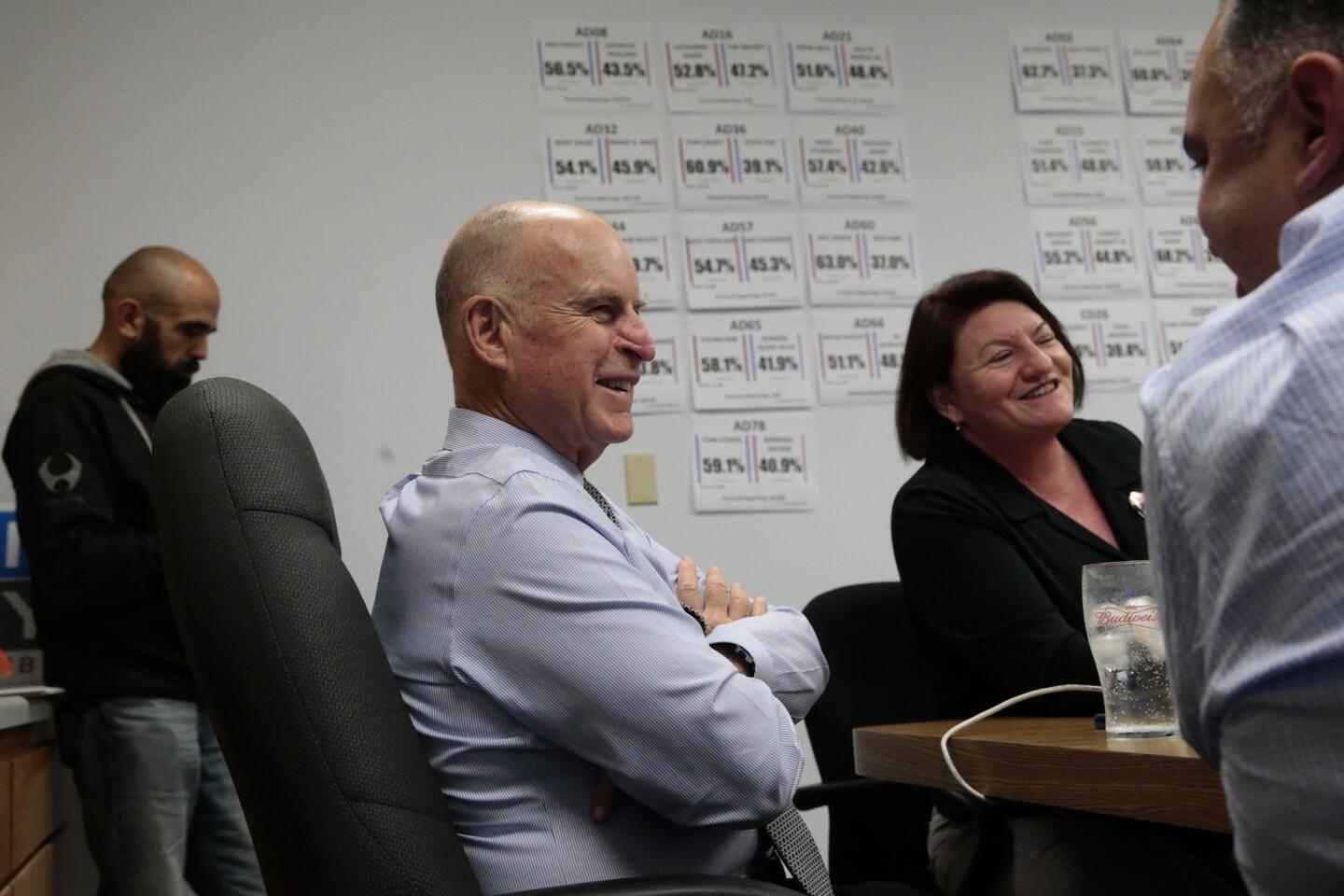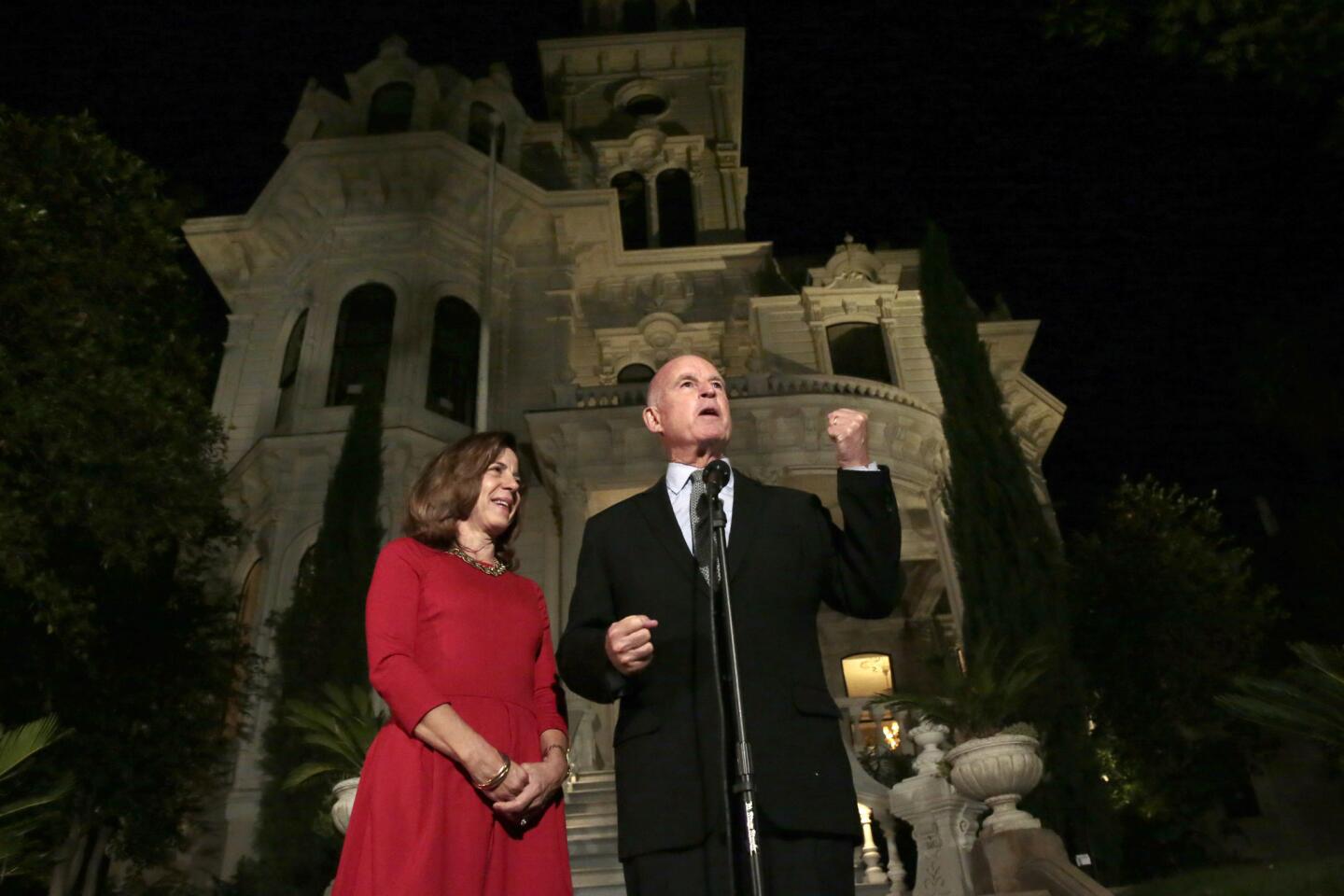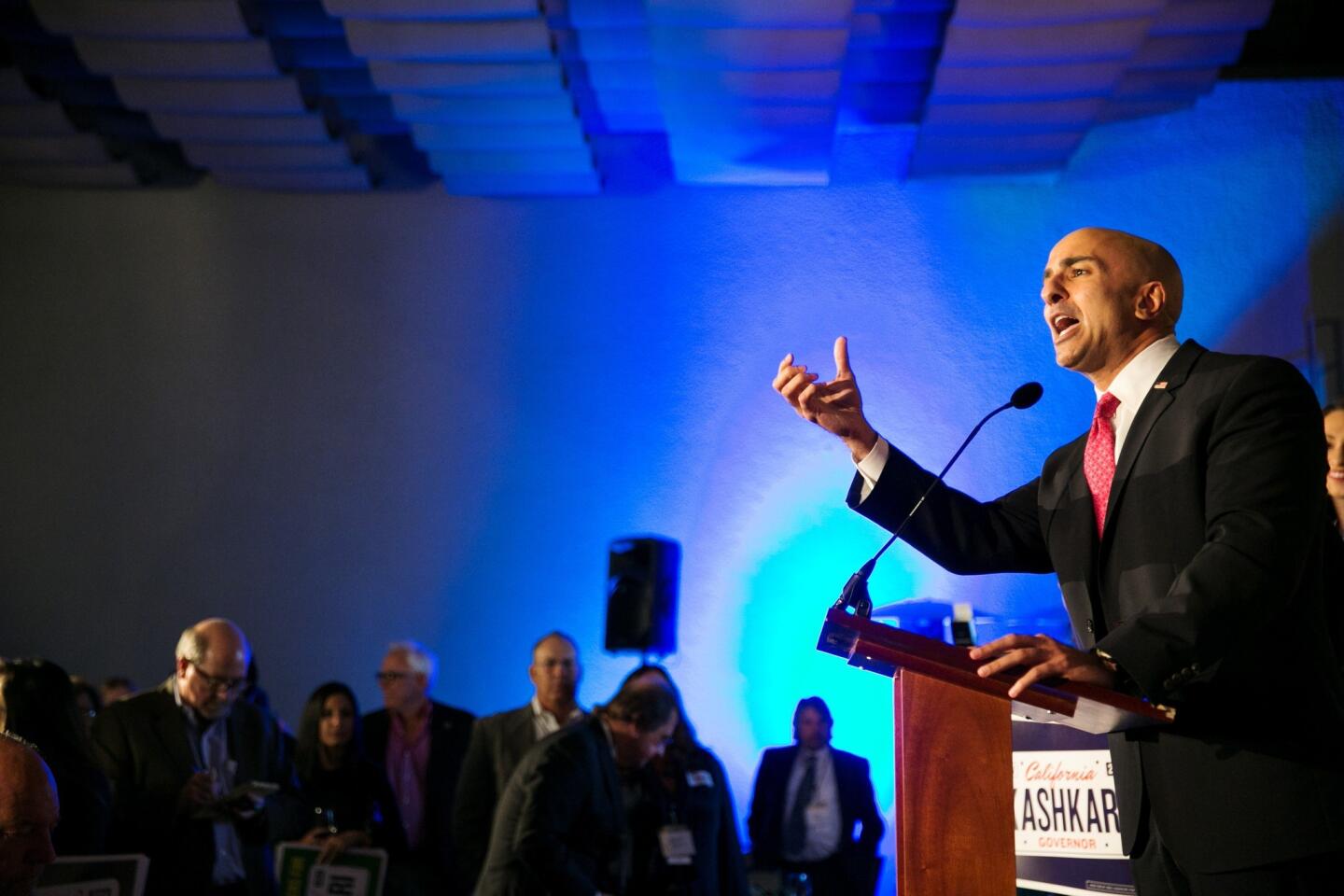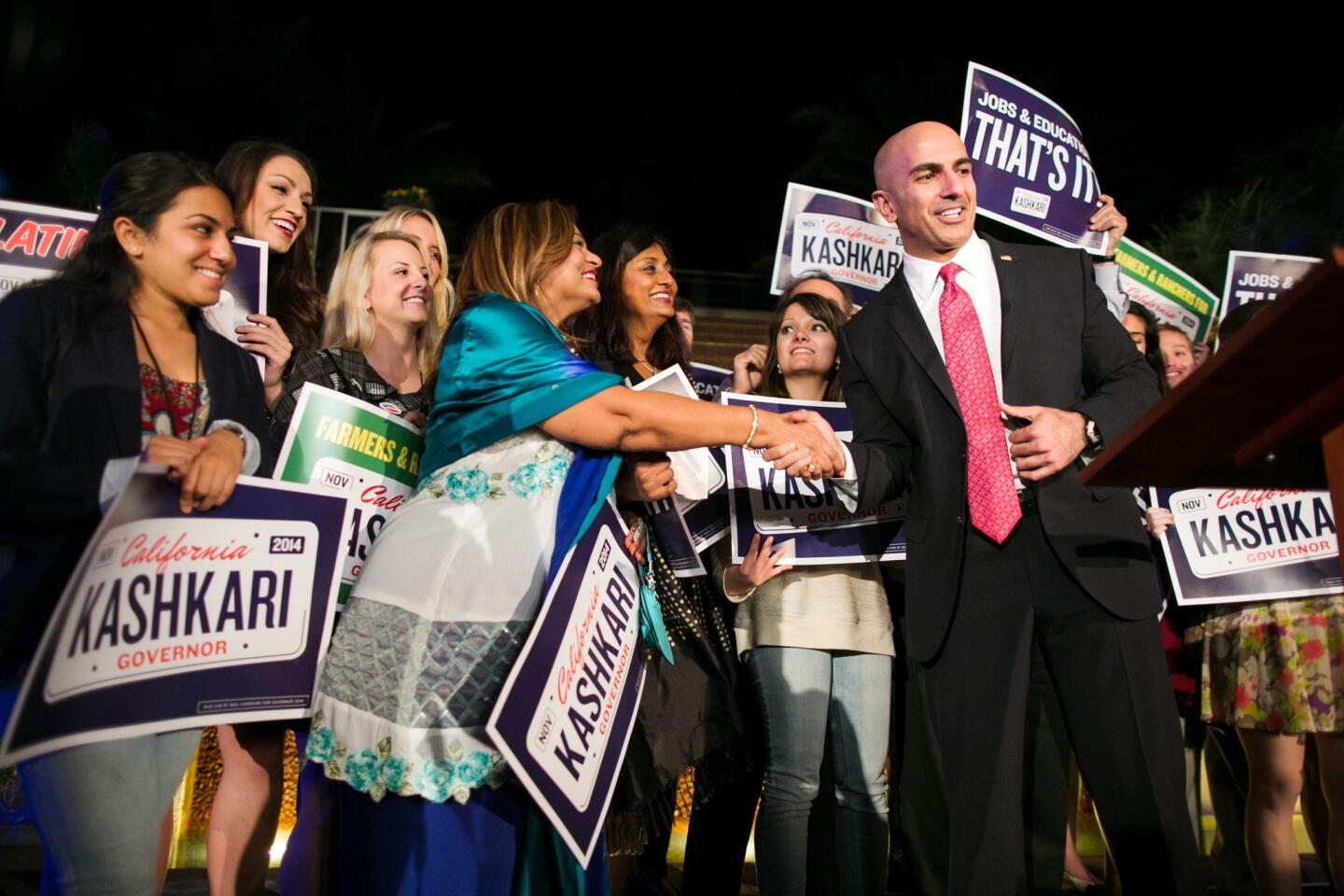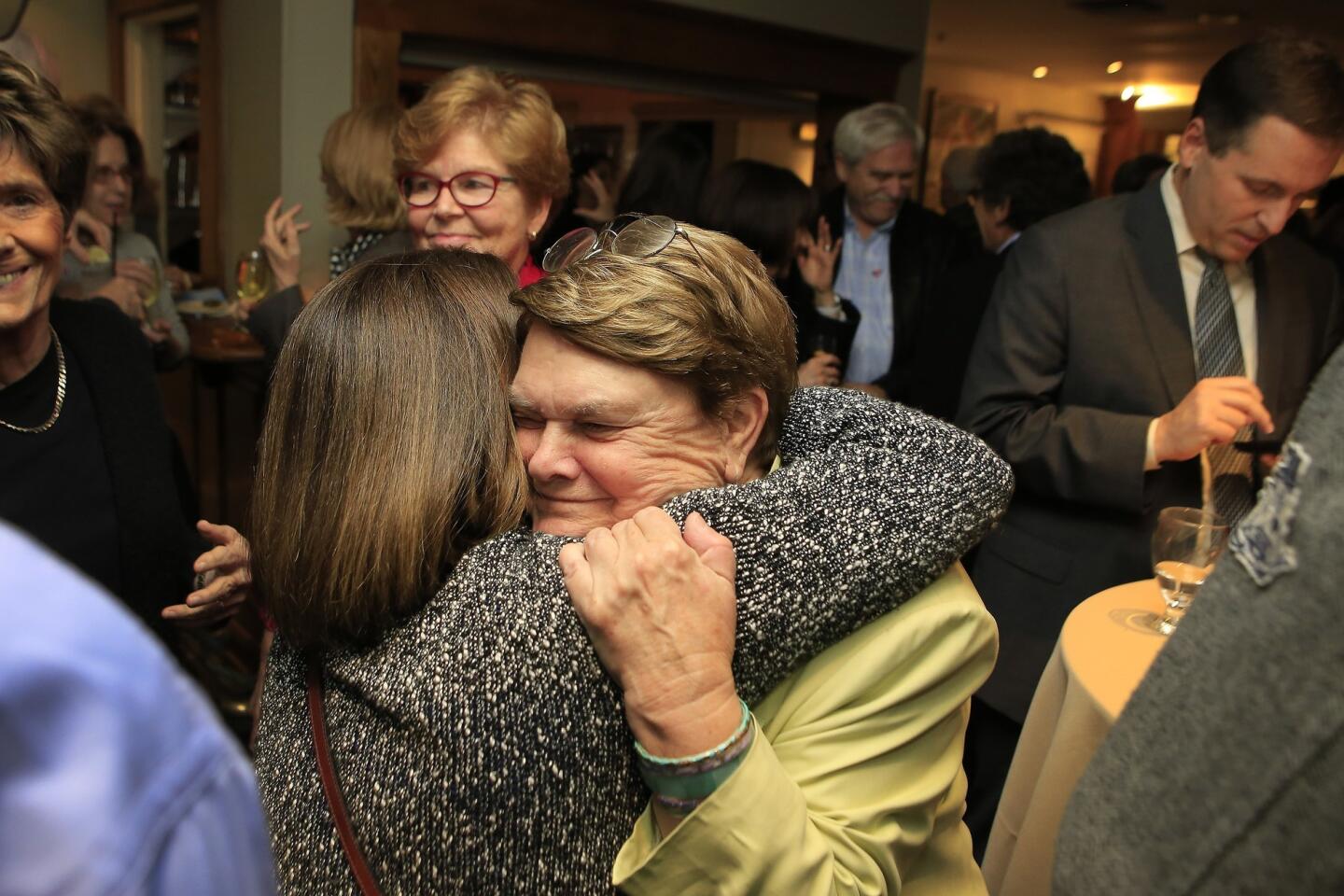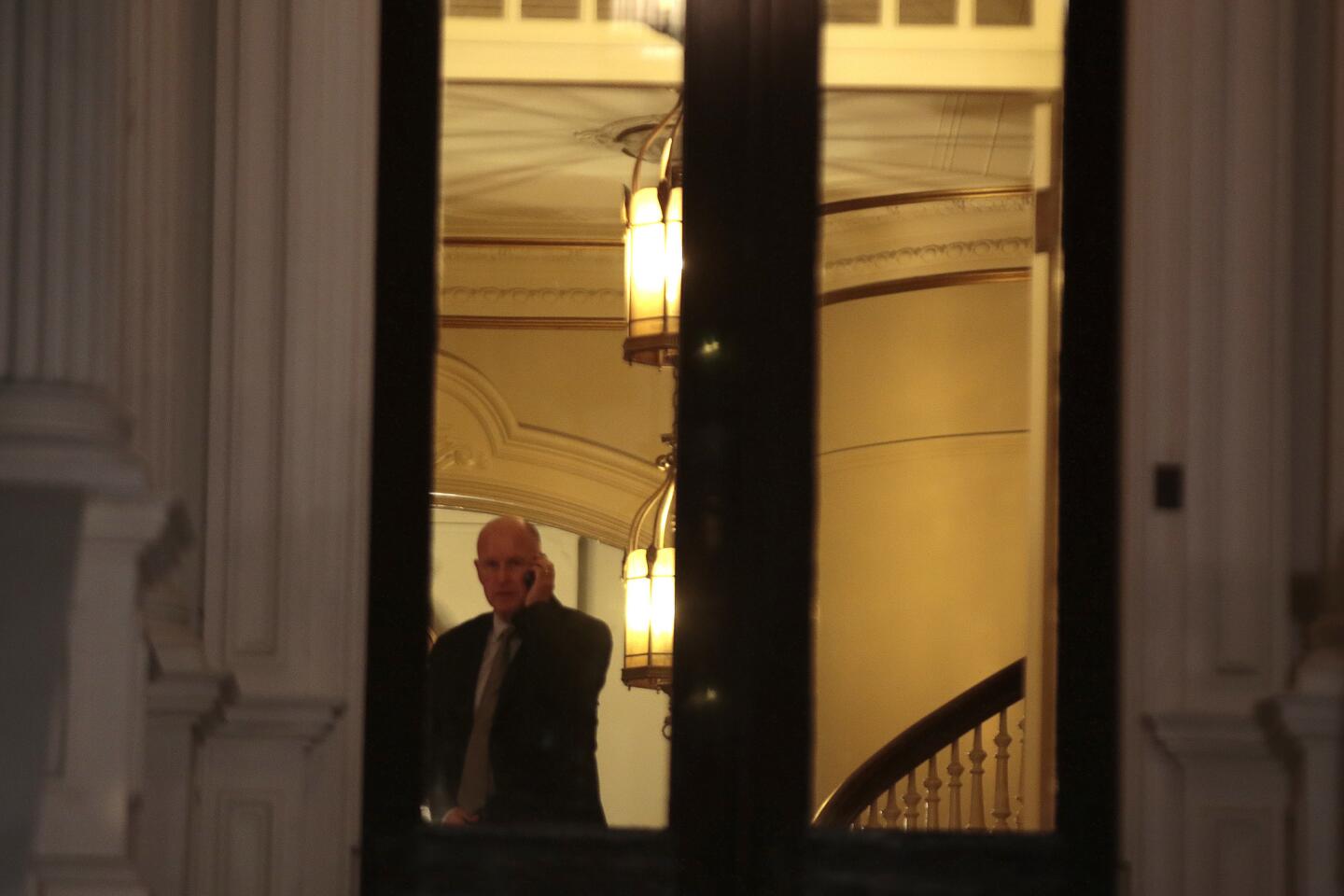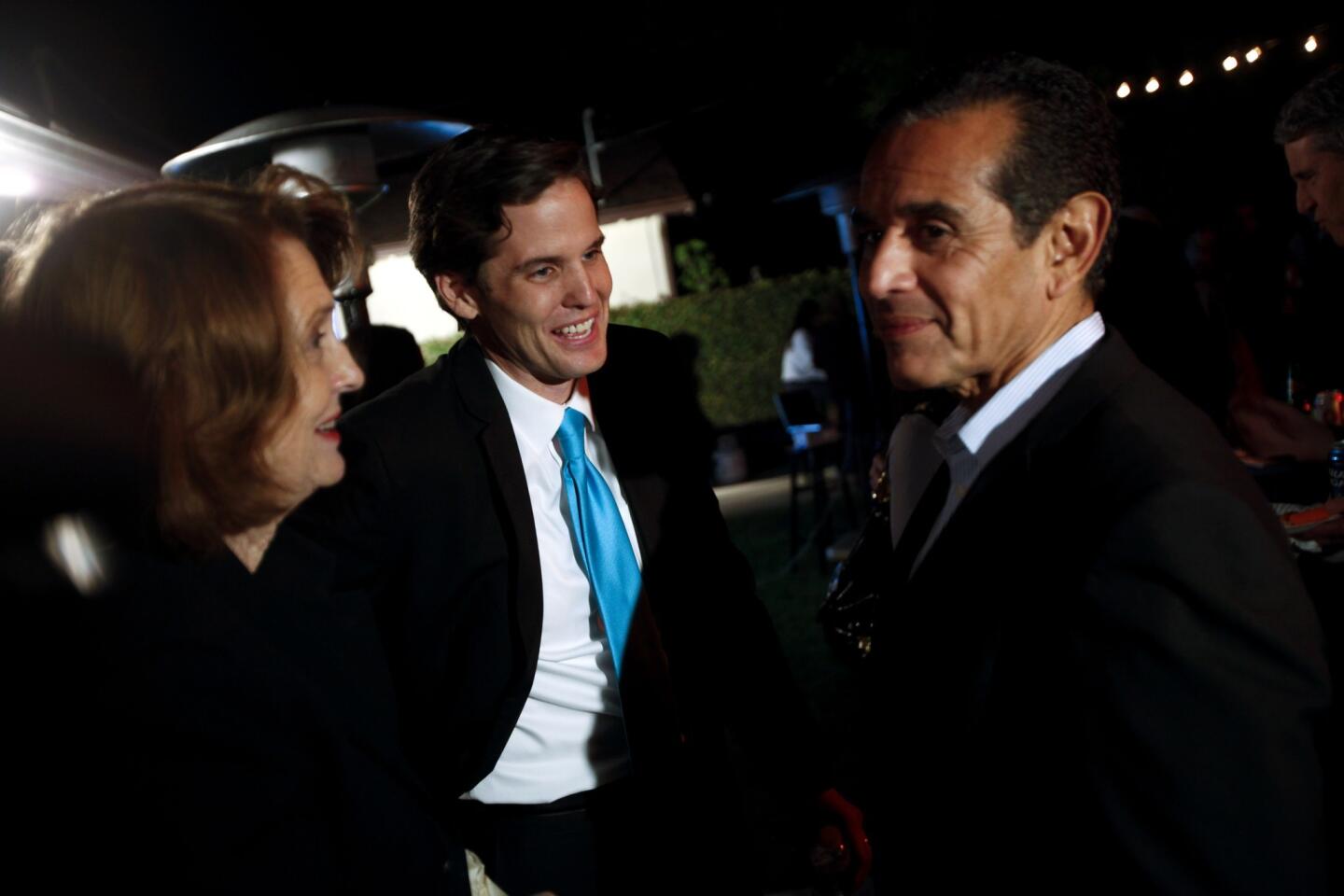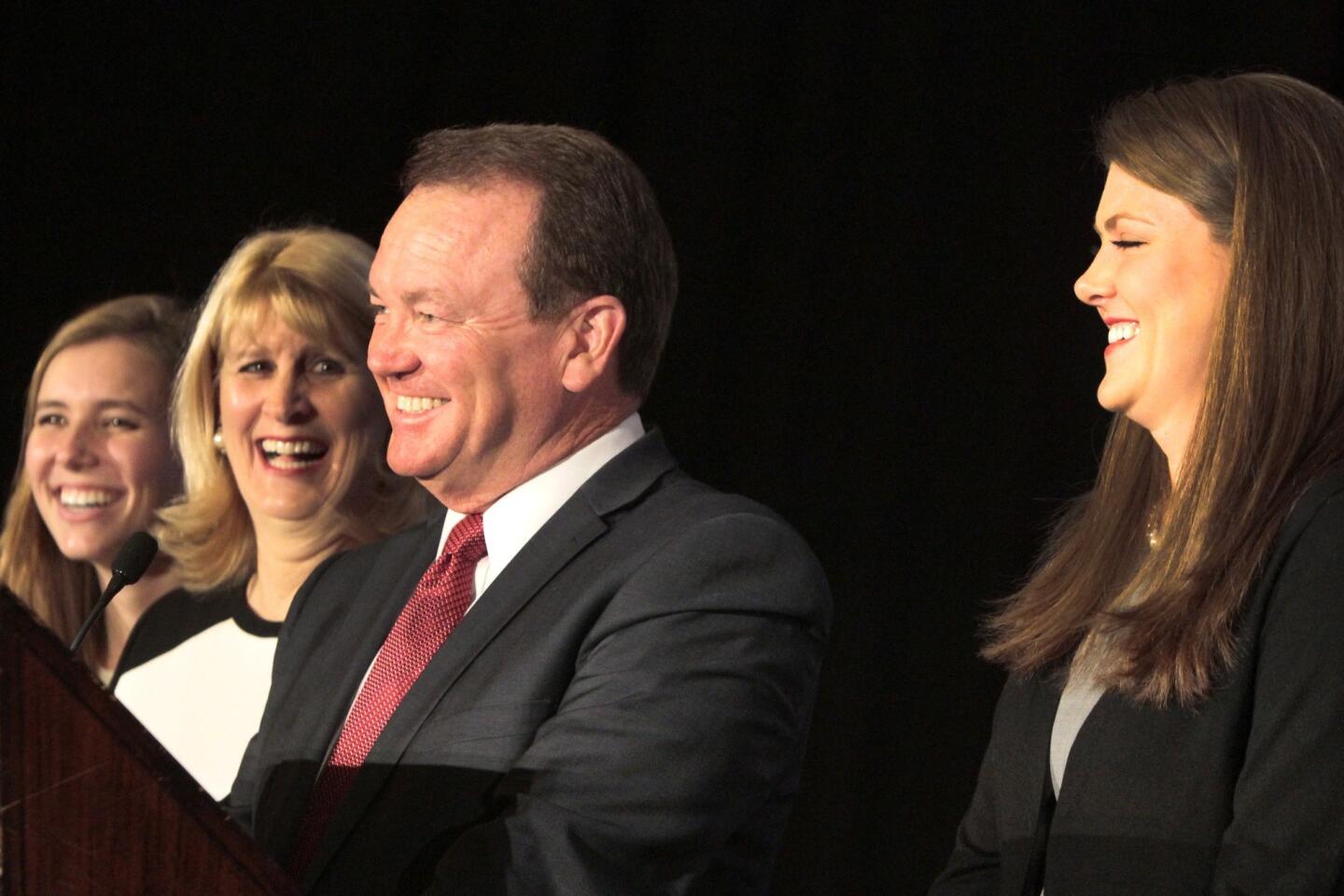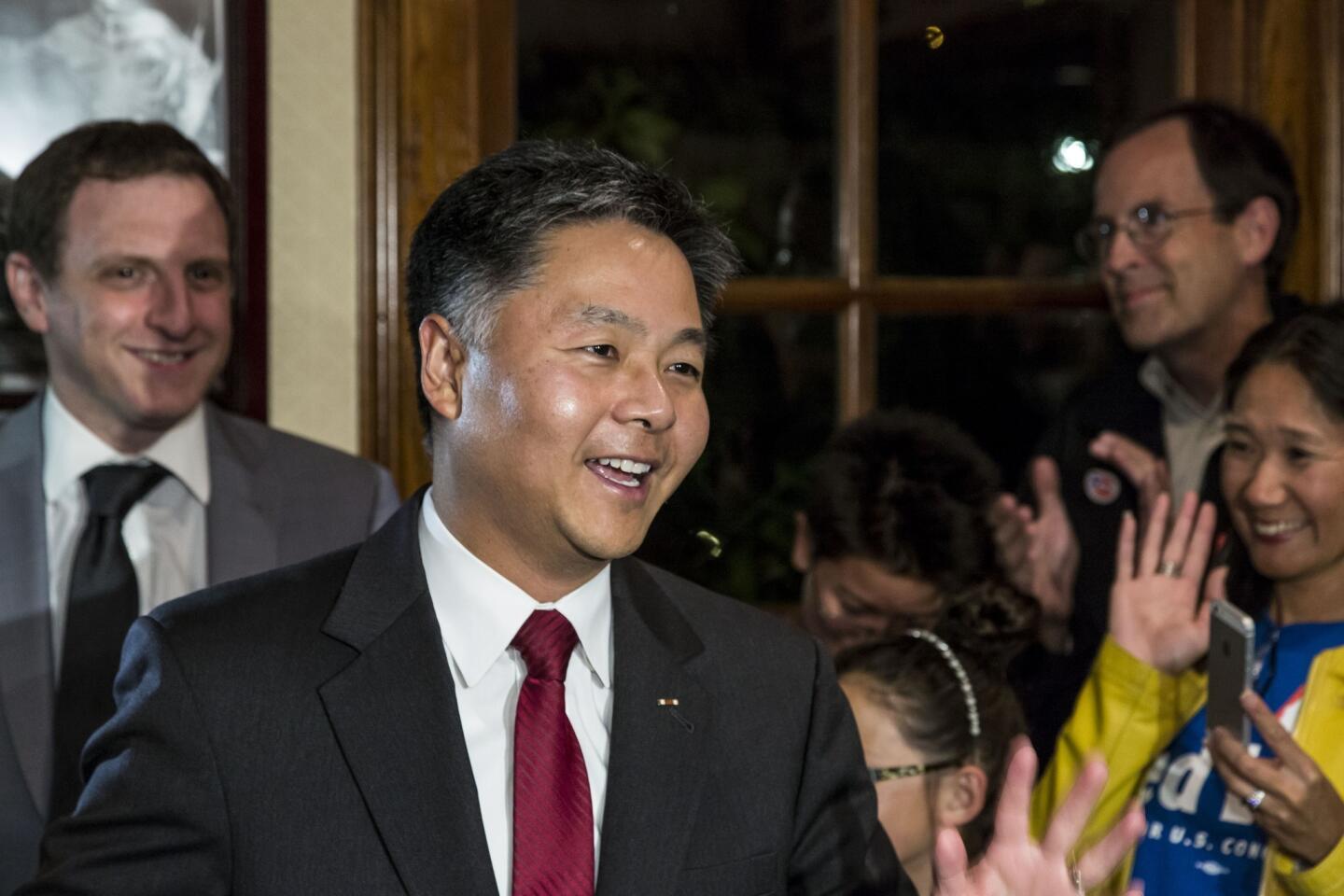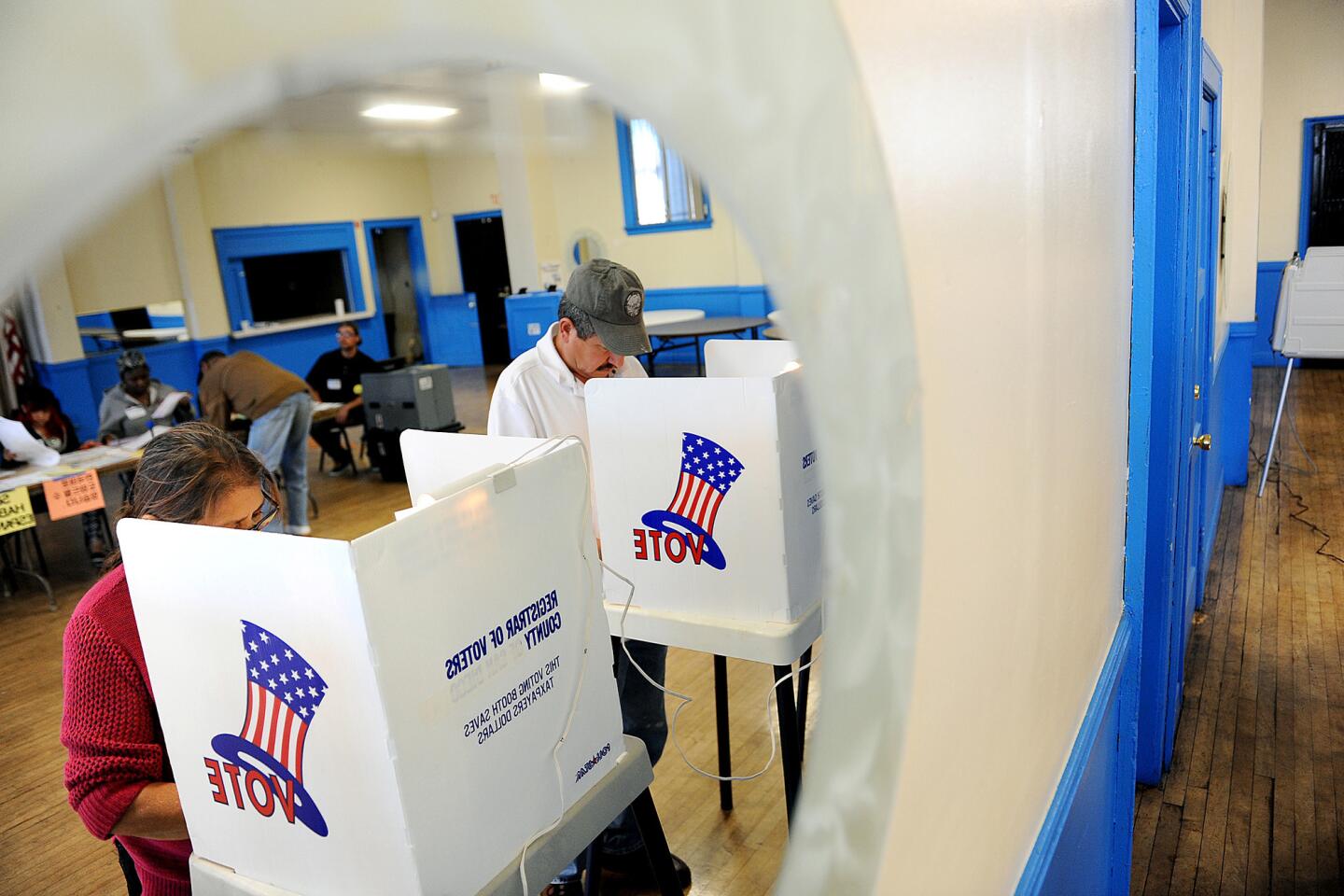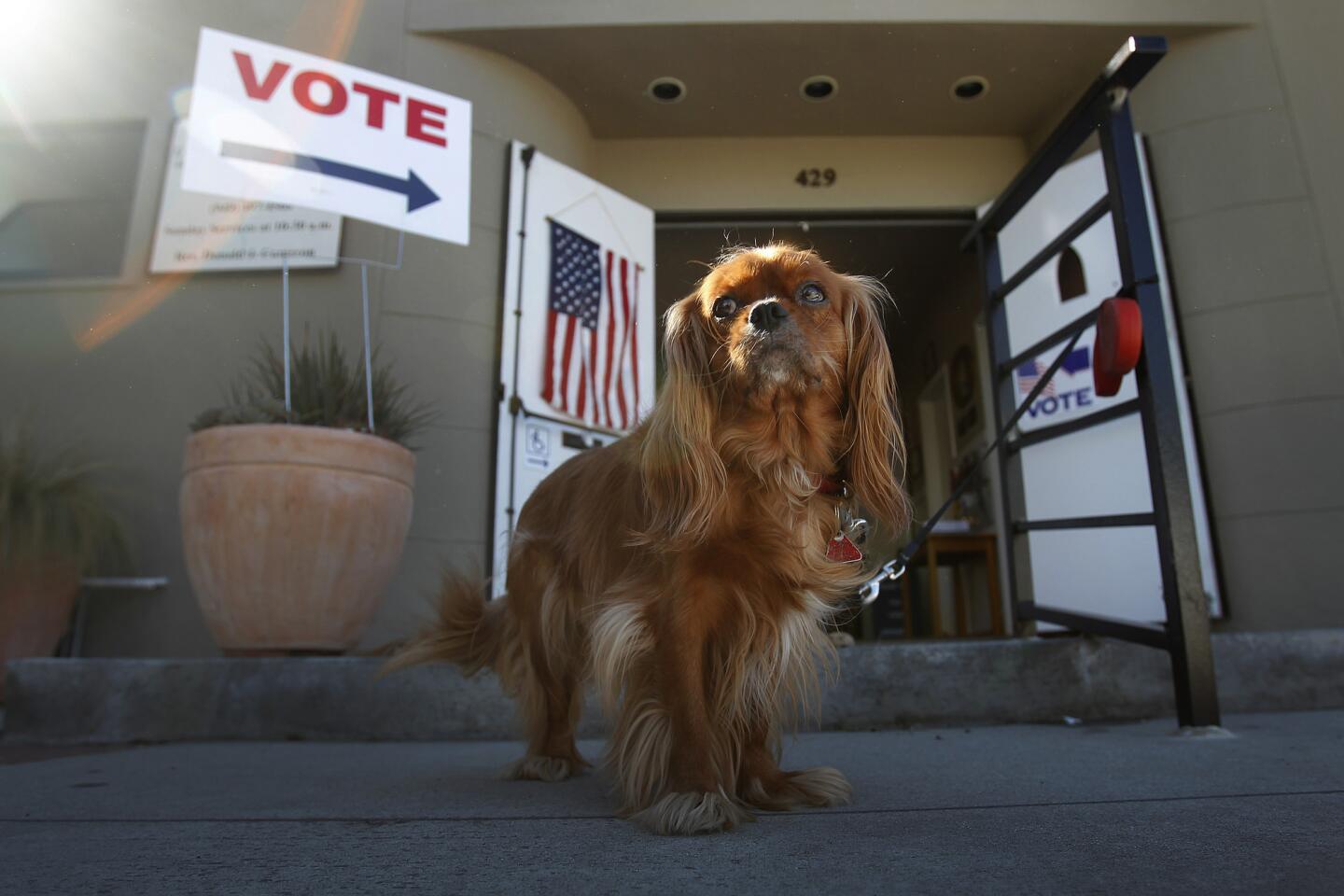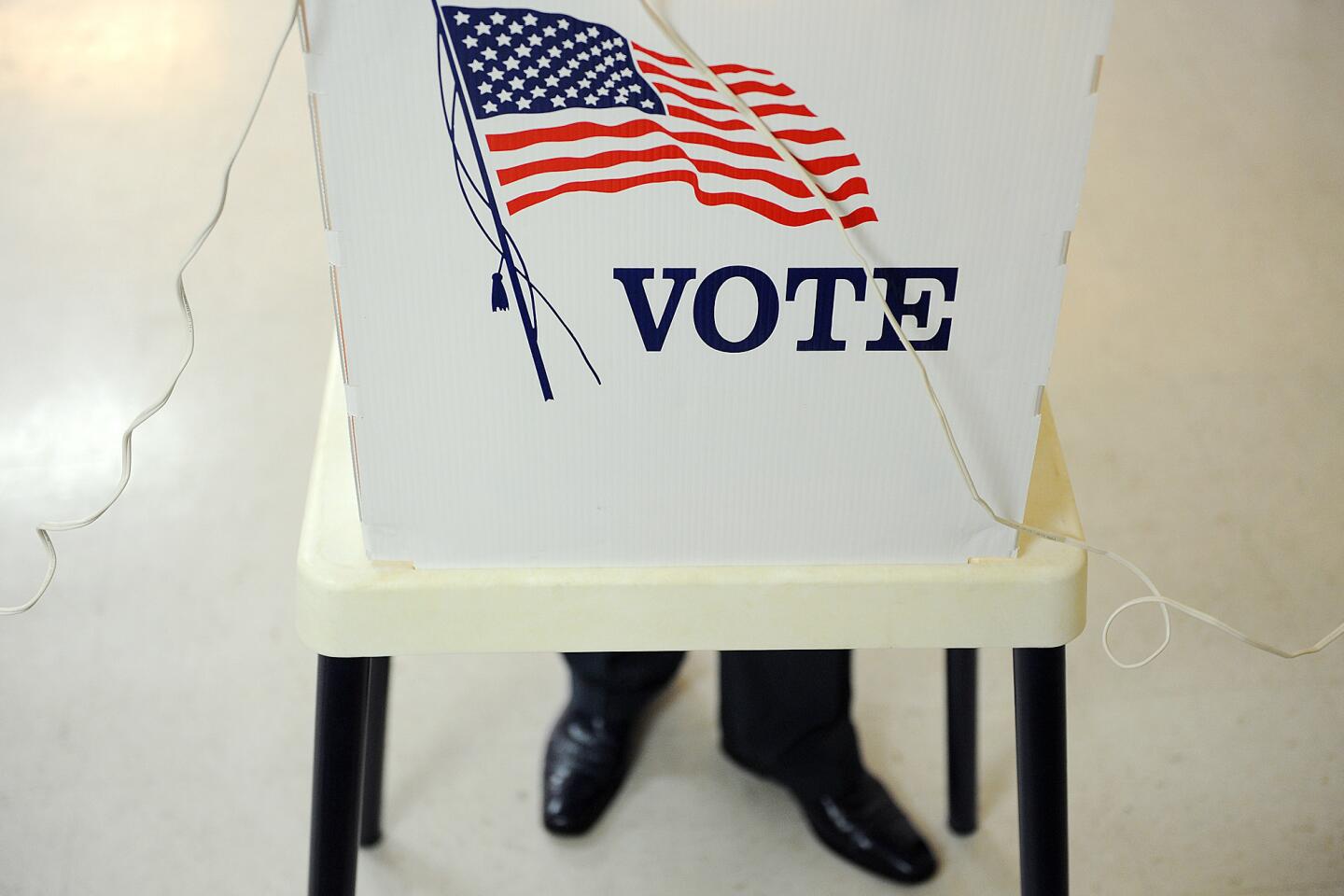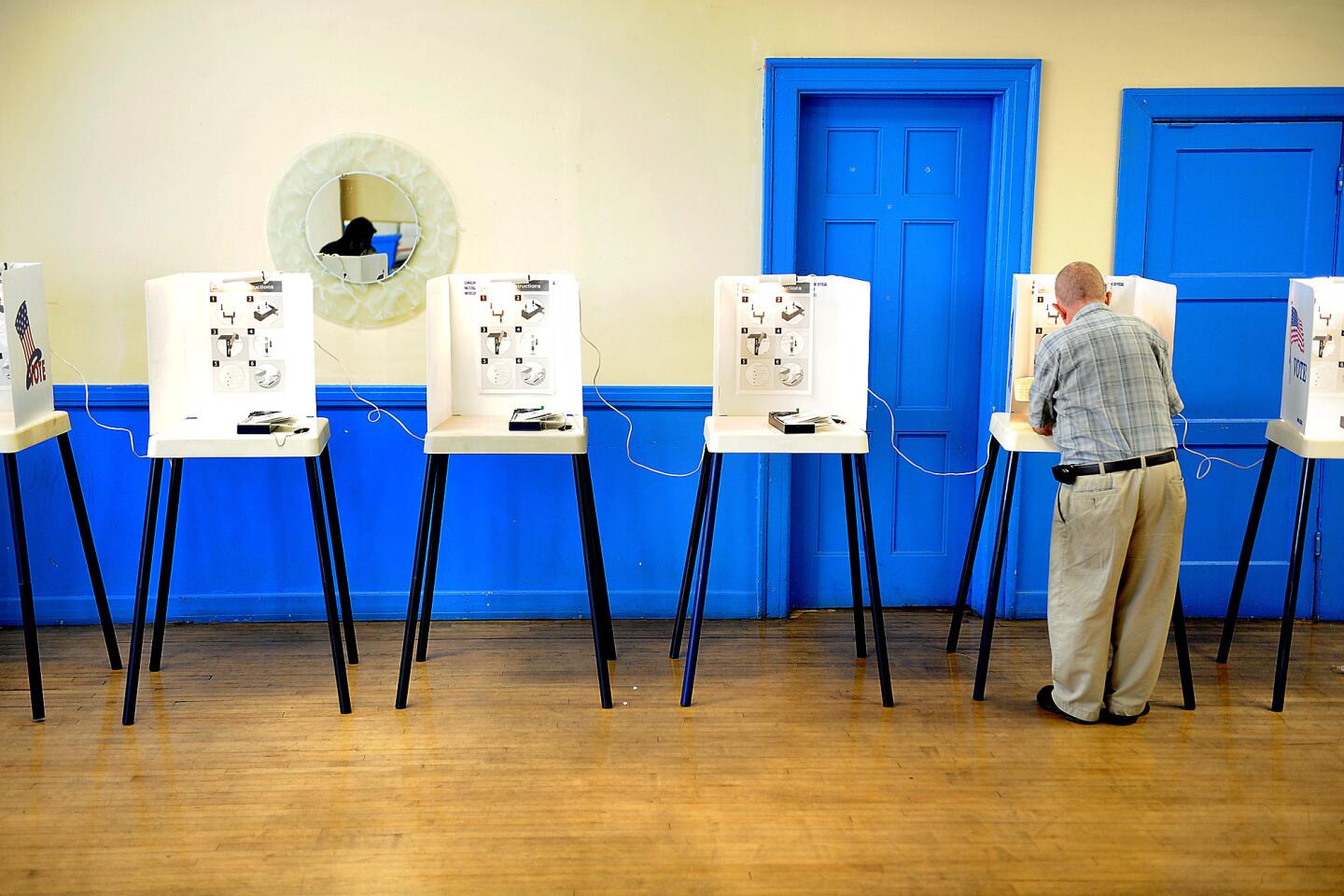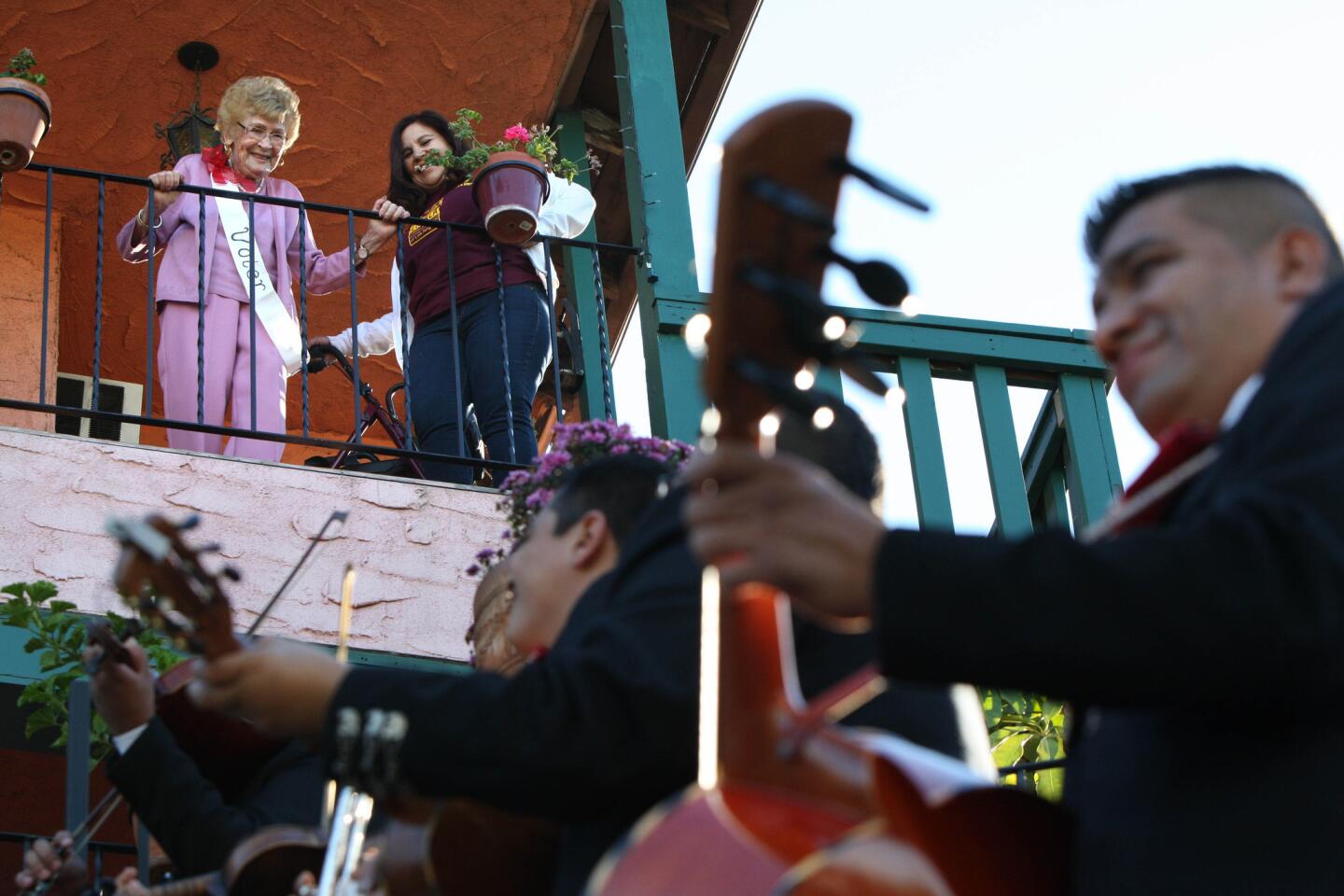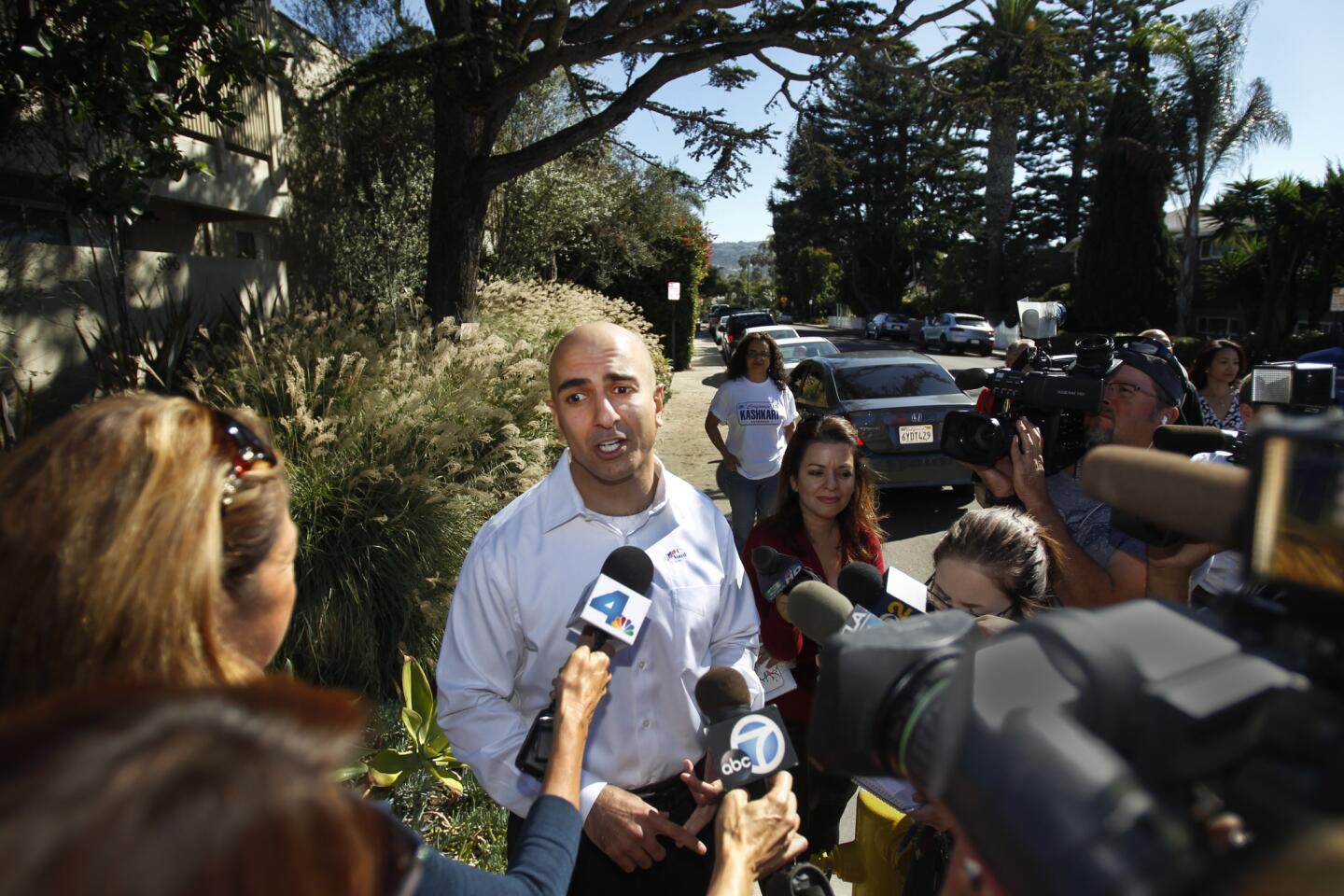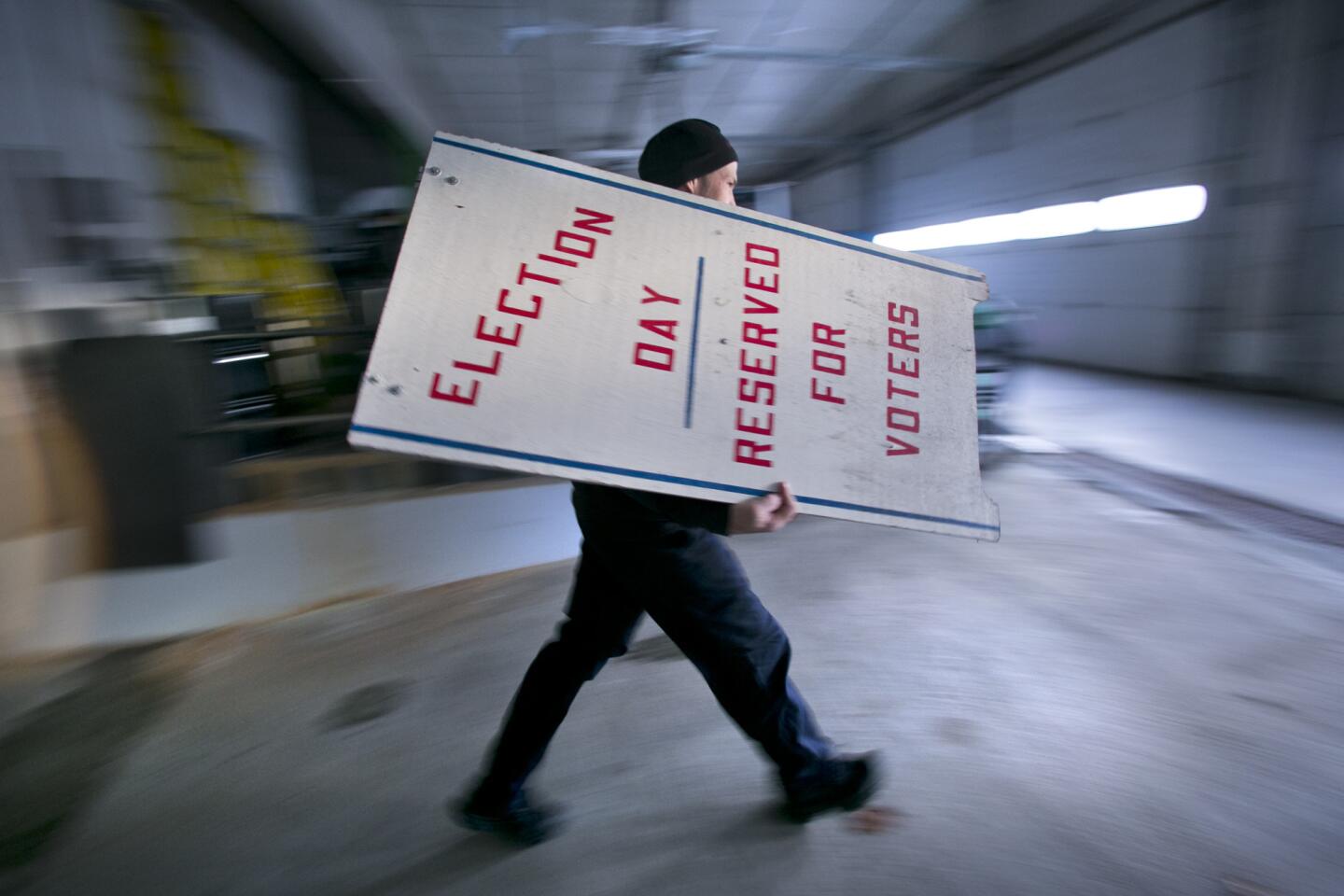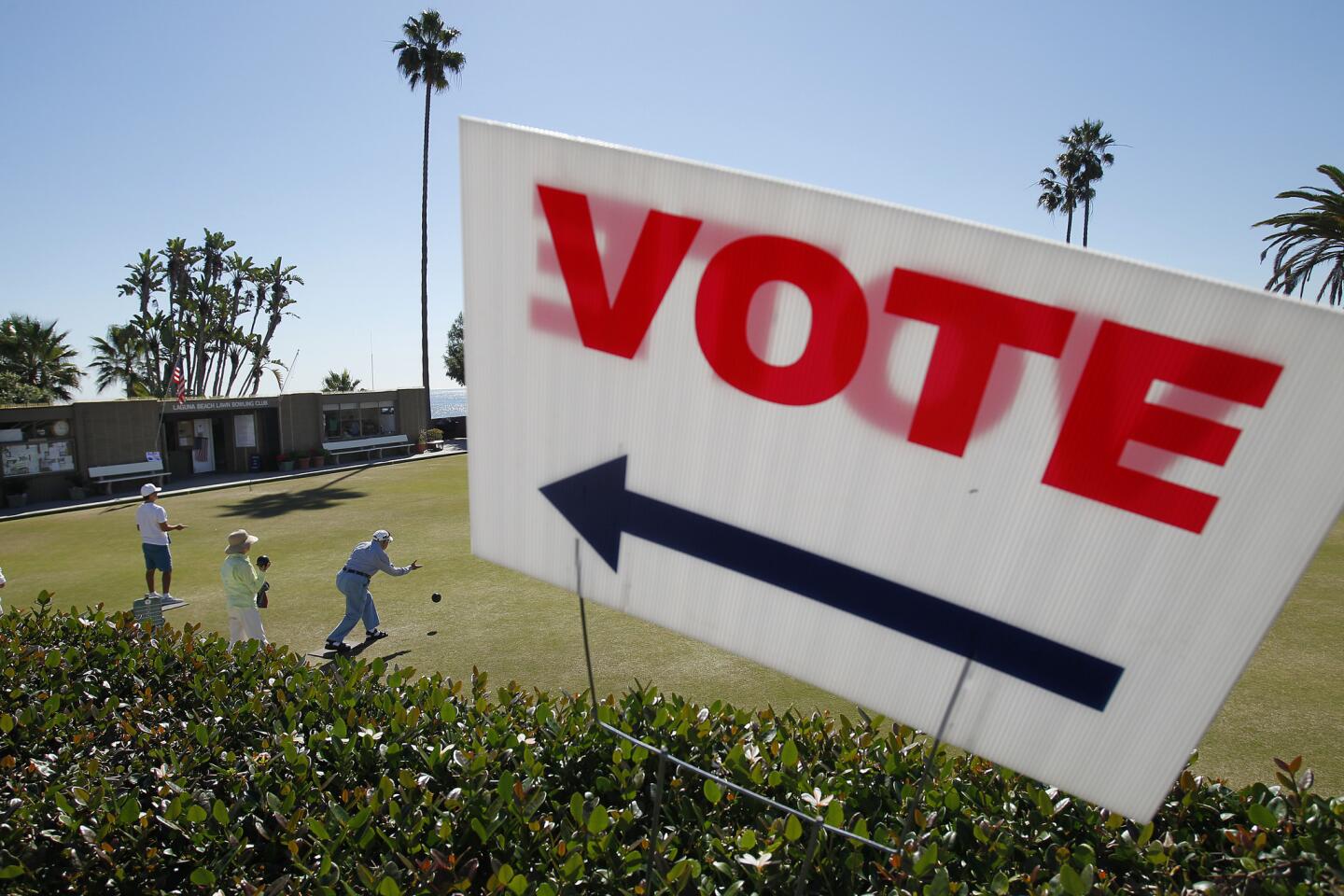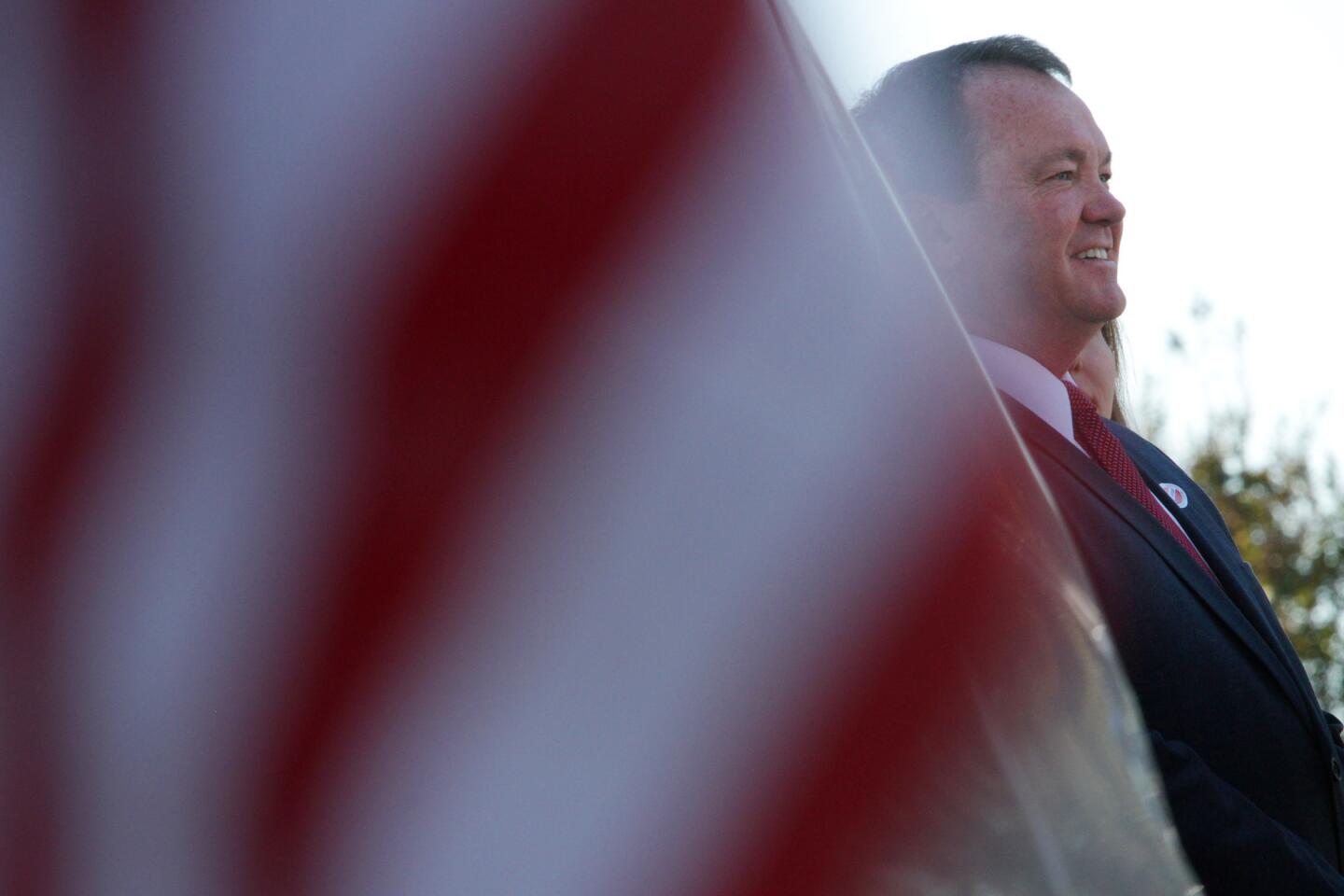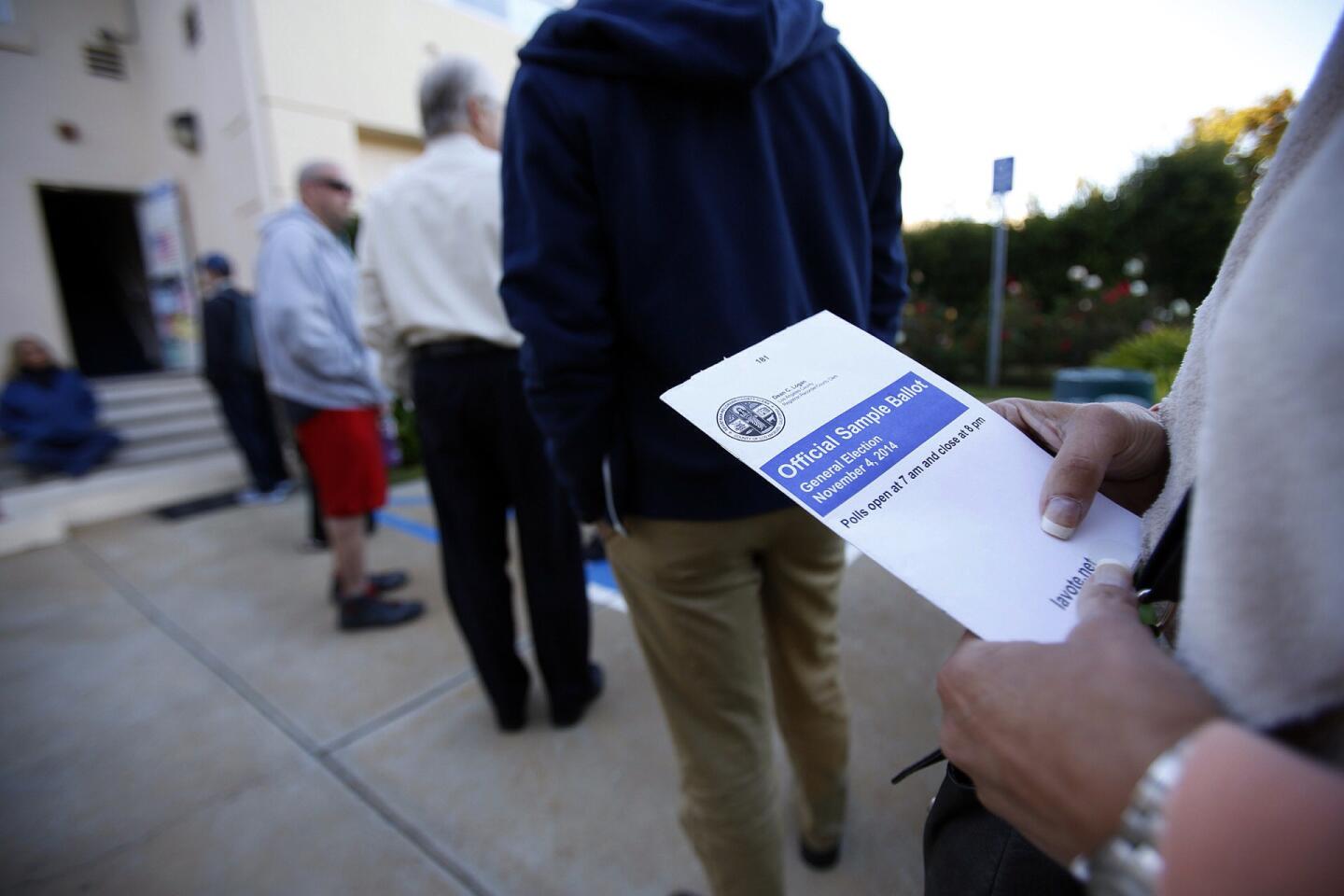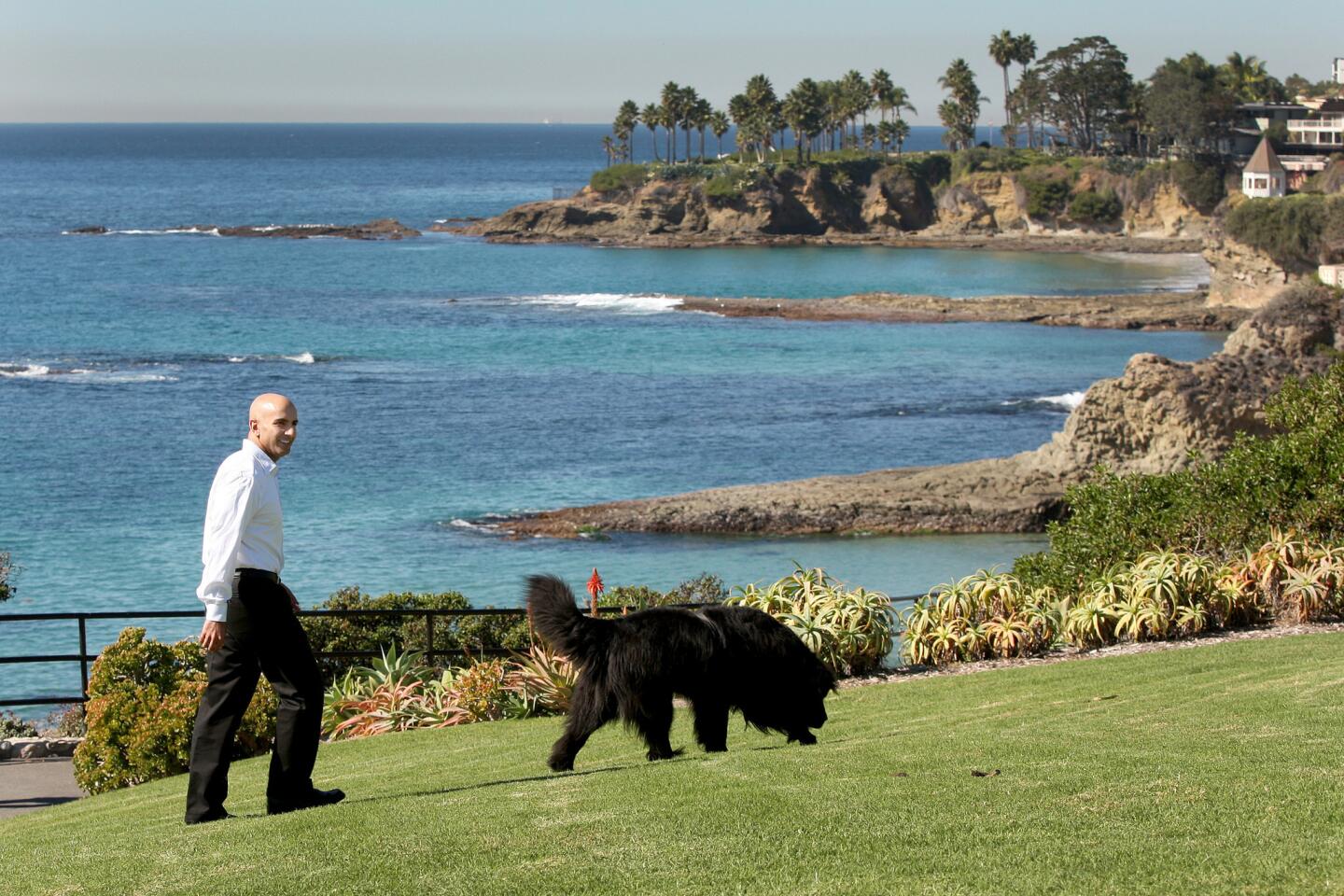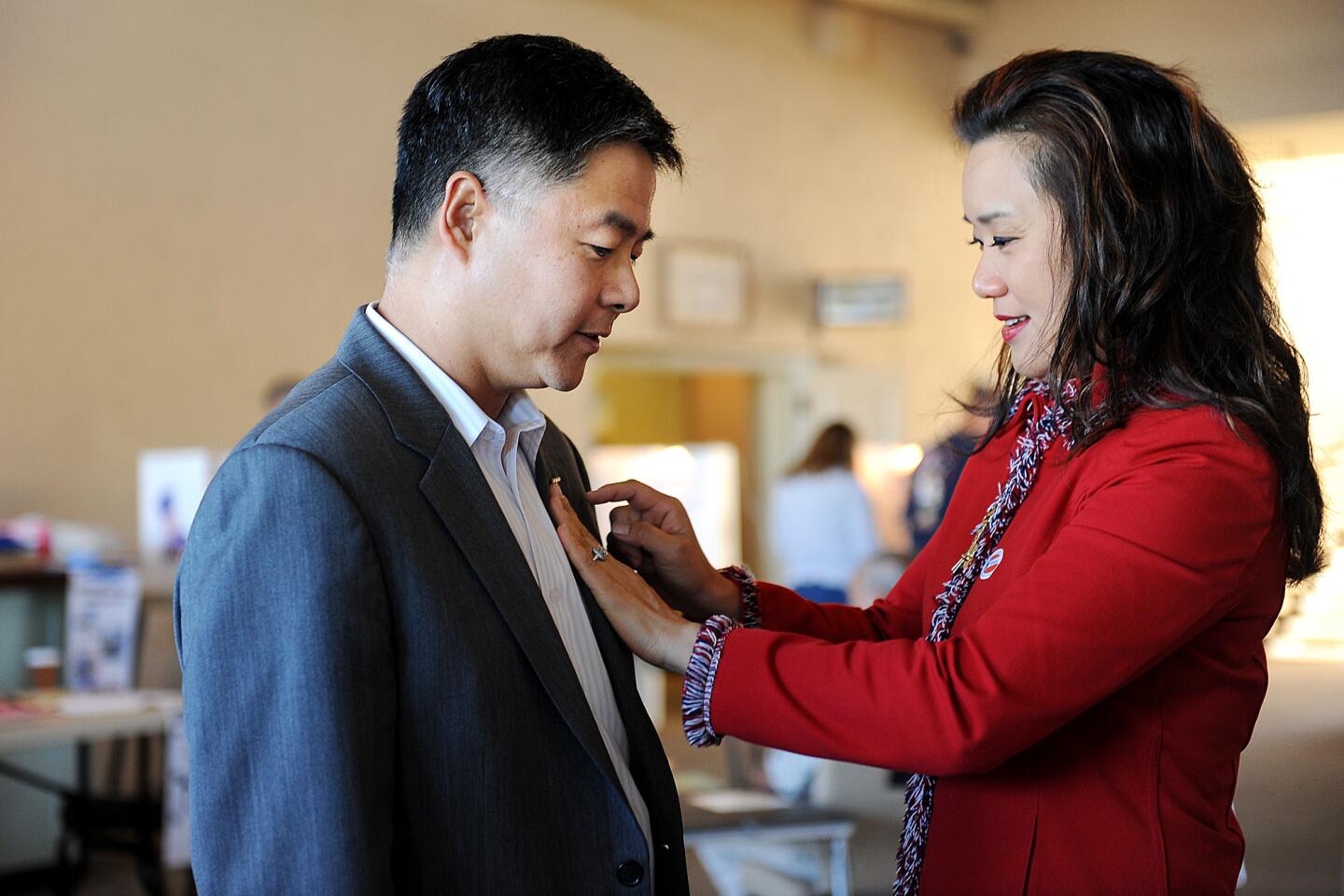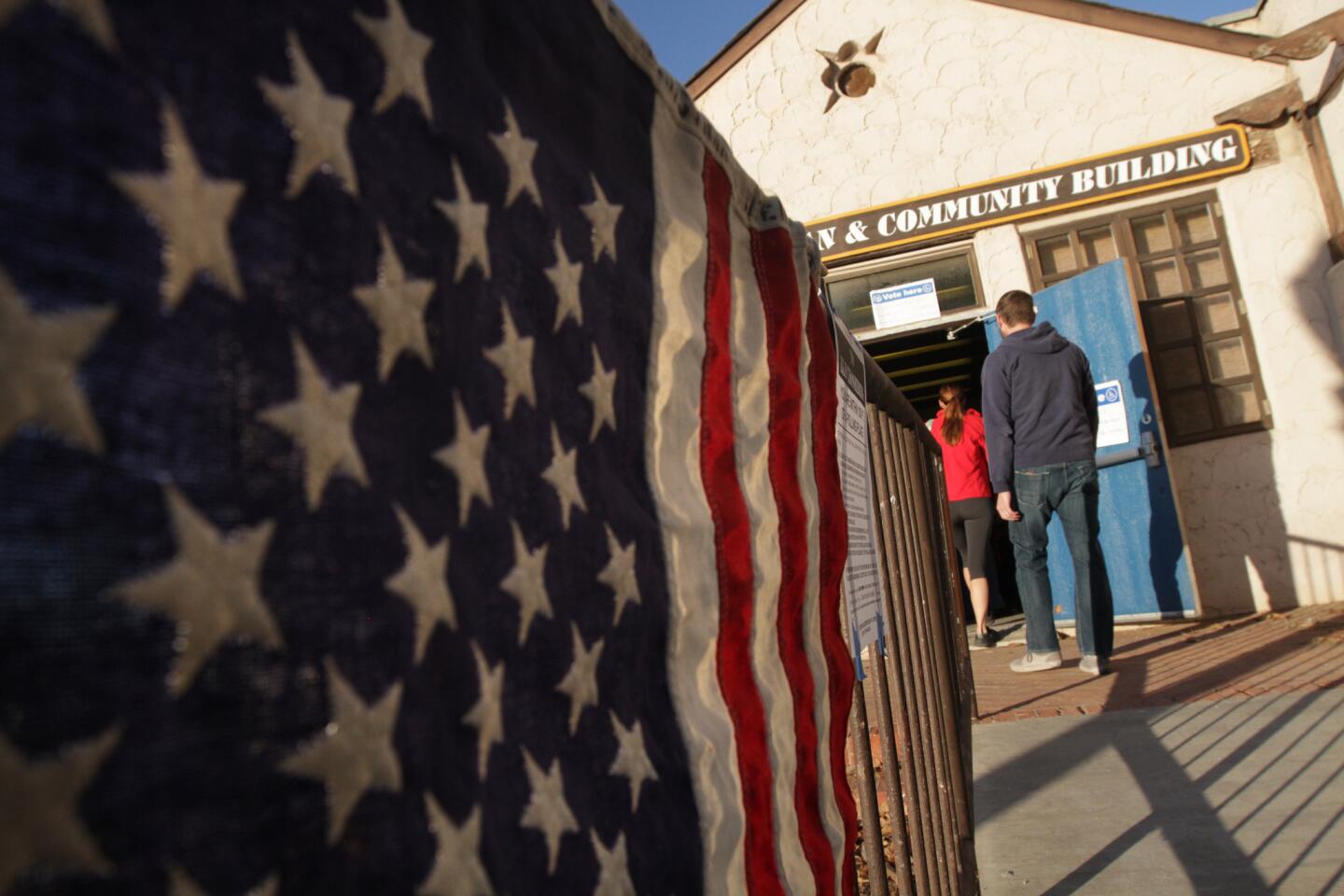Jerry Brown makes history, wins fourth term
- Share via
Forty years after vaulting onto the national stage as California’s young and quixotic new governor, Edmund G. “Jerry” Brown Jr. won a historic fourth term Tuesday as the seasoned elder who led the state’s recovery from near fiscal disaster, according to the Associated Press.
The 76-year-old governor’s reelection came as two fellow Democrats won second terms: Lt. Gov. Gavin Newsom, 47, and Atty. Gen. Kamala Harris, 50.
The early reminders of Democrats’ strength in California contrasted with Republican gains in a national midterm election largely defined by the unpopularity of President Obama.
In Sacramento on Tuesday night, Brown alluded to the Republicans’ capture of the U.S. Senate as he pledged to stay the course with an agenda of fiscal restraint.
“In the rest of the country, they’re going in a slightly different direction,” the governor, accompanied by his wife, Anne Gust Brown, told reporters on a sidewalk outside the historic Governor’s Mansion. “In California, we are going to go in, I think, a very progressive but fiscally responsible direction.”
At stake in California were eight statewide offices, 53 U.S. House seats, 20 state Senate and 80 Assembly seats, six statewide ballot measures and scores of local races.
A big uncertainty was whether the foul national climate for Democrats, combined with a relatively dull ballot in California, would deny the party a two-thirds legislative supermajority that would effectively consign Republicans to irrelevance in Sacramento.
The Field Poll projected a record-low turnout of 46% of the state’s nearly 18 million voters, with key Democratic groups sitting out the election more than others: Latinos, women, young voters and residents of Los Angeles County.
Sharon Pruhs, 76, the first voter in line Tuesday at a polling place in Highland Park, captured the lack of enthusiasm as she explained why she backed Brown and other incumbents.
“As far as I’m concerned, they’re doing an OK job,” she said.
Brown attended a memorial service Tuesday morning for slain Placer County Sheriff’s Det. Michael Davis Jr., then spent the day working at the state Capitol before an election-night dinner at the mansion.
His Republican challenger, Neel Kashkari, voted Tuesday morning near his home in Laguna Beach. His election-night party was taking place at a Costa Mesa hotel.
Of all the contests on the California ballot, it was Brown’s reelection, even if a foregone conclusion, that carried the historical resonance. His father, Democrat Edmund G. “Pat” Brown, served two terms as governor before Republican Ronald Reagan ousted him in 1966. His son avenged that loss with his gubernatorial victory -- at 36 years old -- in the Democratic surge of 1974, in the aftermath of Watergate.
“He lucked out because of Watergate,” said Stu Spencer, a top Reagan political advisor who oversaw Republican Houston Flournoy’s 1974 campaign against Brown.
Brown went on to win reelection in 1978, run unsuccessfully for president three times and for U.S. Senate once before his 1998 comeback as Oakland mayor and his election as attorney general in 2006 and governor, once again, in 2010.
“As time went on, he became more practical,” Spencer said. “He’s a skilled politician.”
In an era of crippling drought, prison overcrowding and substandard schools, Brown’s deep grounding in California politics has helped him maneuver in Sacramento.
But his success in pulling the state back from the brink of fiscal calamity is not just a result of the temporary tax hikes that he persuaded Californians to approve two years ago. It’s also the luck of timing: He took office just as the state’s recovery from its worst downturn since the Great Depression was beginning.
“Mayors and governors get more credit than they deserve when things get better,” said Bruce Cain, a Stanford University expert on California politics. “They get more blame than they deserve when things get worse.”
Twitter: @finneganLAT
More to Read
Sign up for Essential California
The most important California stories and recommendations in your inbox every morning.
You may occasionally receive promotional content from the Los Angeles Times.
